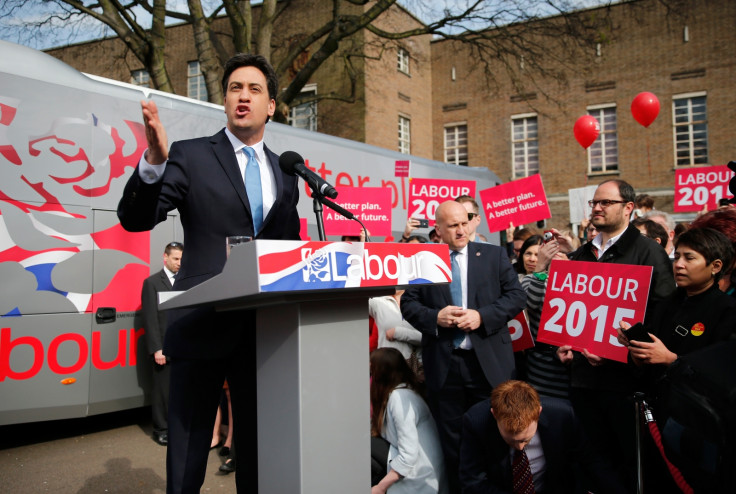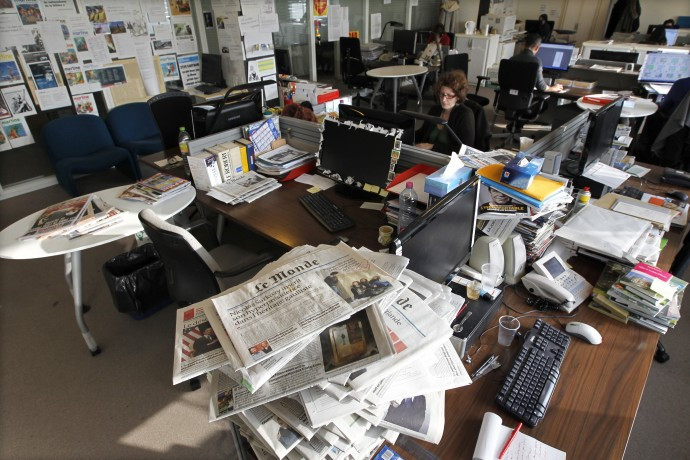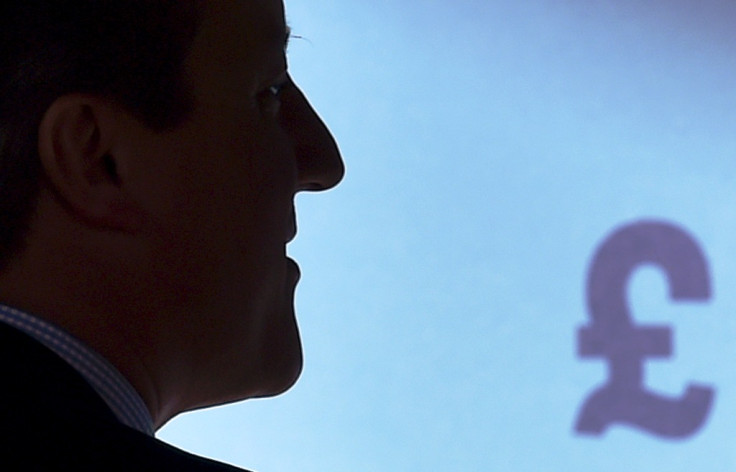From Cairo to New York, Dubai to Beijing: How the world is (or isn't) talking about UK election

Britain may have gone election mad over the past few weeks, but Britons living over the water in America say that the US media has barely registered the closest UK election in a generation.
"There is little or no interest [...] here," said Nicholas Wapshott, a British journalist and opinion editor at Newsweek.com in New York.
The coverage that the British election has garnered in America is limited to the New York Times and the Washington Post, and British expatriates living in the US are reduced to reading British newspapers online or emailing friends back home for political debate.
"Since the departure of Tony Blair, New Yorkers - and Americans in general - have stopped paying attention to British politics by and large, and if you fired up virtually all the news websites, or watched cable tv news here, you'd have no idea there was an election battle going on across the pond," said Matt Wells, a British journalist living in New York.
"Boris Johnson as Mayor of London is better known here than David Cameron, and I'd bet that name-recognition for Ed Milliband would be virtually zero."
But not everyone shares the disinterest of our American cousins.
On 6 May, the second lead on the front page on Saudi Arabian daily newspaper Asharq Alawsat – an Arabic newspaper published in 14 cities – was an analysis of the British election, covering not only the campaign but the potential coalition options for the leadership come Friday.

Jihad El-Khazen, a columnist for the rival Al-Hayat newspaper, mocked the UK election process and accused leaders David Cameron, Ed Miliband and Nick Clegg of being all talk and "making pledges without serious action".
On a sadder note El-Khazen added that the situation was better than to have a leader forced on a nation, as is the case in much of the Arab world.
Over in Dubai, English-language daily Gulf News has been running one page per day on the UK election alone, Francis Matthews, editor-at-large, told IBTimes UK – and not just to cater for the tens of thousands of British expatriates that call the Gulf emirate home.
But Matthews says that Arab readers are less interested in the battle between the three major parties than they are with British foreign policy.
"Britain has deeply disappointed its friends in the Arab world, most recently with its refusal to get involved in stopping Al Assad gassing his own people, and previously with the chaos in Libya following the lack of a civil programme to handle the post-Gaddafi moment," he said.

Gulf News gave the UK election a page a day last week, he said, moving to two pages this week and until Sunday or Monday depending on how the coalition talks progress. They have also sent a reporter for a week to cover the election, he added.
No friends in Beijing
Over in Britain's other major sphere of influence, the Far East, China's state-owned Global Times has been covering the election but its editorial writers suggest that few in the country are interested in the minutiae of the outcome.
That said, its lead editorial published Tuesday (5 May) made clear that Cameron is not well liked in Beijing.
"On the one hand, he wanted his first diplomatic visit to Beijing to be one of trade deals and business development. On the other, wanting to show his statesmanship chops, he chose to admonish Beijing about human rights and encourage the adoption of multi-party democracy," the paper thundered.
Global Times points out that Cameron was a persona non grata in China after his meeting with the Dalai Lama, after which Chancellor George Osborne flew to Beijing "for some damage control". Since then, it says, the relationship has improved but the Chinese government "is unlikely to value stability with a government that has been so contradictory in its China policies".
At the same time, the newspaper slams the Labour party under Tony Blair for its "dismal human rights record" and suggests that a Miliband led Britain would not be much better.

Focus on Brexit
In Europe, it is unsurprising that much of the coverage of the elections have related to the pledges from Cameron and Miliband about the possibility of an exit from the EU – the former having promised a referendum and the latter ruled it out.
But equally, a day before Britain goes to the polls the UK election coverage of France's most widely respected daily Le Monde is not as extensive as one could expect from one of its closest neighbours.
The first mention of the looming poll was on the third international page of its Wednesday 6 May copy, in the form of a half-page feature titled 'Ed Miliband, l'ascencion d'un resilient', literally 'the ascent of a resilient (man)'.
But from a purely French point of view, Le Monde's 5 May piece 'Would the UK benefit from leaving the European Union' embodies Paris's coverage of the elections: the role of the UK on the international stage.
It suggests that a British exit from the EU could end up shaving between 0.06% and 0.3% off France's GDP per capita and presents a number of reasons why the British economy would not come out a winner if it left the group.

On Tuesday, conservative daily Le Figaro also offered its share of coverage of the UK-EU love/hate relationship, with this headline on its front page: 'Grande-Bretagne: ce vote qui fait peur a l'Europe' (Great Britain: this vote that scares Europe).
With a more radical tone, the daily said the European future of the UK – and that of Europe itself – depends on the results of the elections. Two days earlier, on 2 May, it ran another – rather more neutral – front pager looking at the do-or-die duel between Miliband and Cameron.
Interestingly, the pro-European Liberation has only shown little interest in the elections on the other side of the Channel.
While its London correspondent signed four articles mid-April looking at the candidates themselves – Nicola Sturgeon and the Scottish wave, the "rebirth" of Miliband and Cameron's post-debate "difficulties" – the moderately left-wing daily's only election coverage in the run-up had a royal spin.
In the only article published on the subject in May, 'La "royal baby girl", parenthèse hystérique dans la campagne britannique' (The "royal baby girl", a hysterical parenthesis in the British campaign), Liberation focused on how, "to the delight of the public, and probably of the candidates David Cameron and Ed Miliband who will be able to breathe a few hours", the royal baby had become the centre of attention of the public, and the media.
From a French point of view, Liberation's thinner-looking coverage may be explained by the electoral campaigns' lack of emphasis on Britain's position in the world, as foreign policy seems to have been absent from headlines in Westminster.

Confusion across the pond
Back in the US, Wapshott, the New York-based author of Keynes Hayek: The Clash That Defined Modern Economics, said that the lack of American interest in British politics is not limited to the election, and ties into a wider misunderstanding amongst many Americans about the make-up of the United Kingdom, not just its political system.
"Even the notion of Britain is misunderstood. Most Americans – even of Scottish or Irish or Welsh descent – refer to the UK simply as England. As for taking an interest in the UK general election, forget it. Even the basic terms of British politics are lost on them," he said.
He added that much of the confusion stems from the vastly different political standpoints of left and right in the US, with many Americans taking Labour's 'socialist' standpoint as 'Communist' and more extreme elements considering the National Health Service a Marxist organisation.
"By their lights, David Cameron is a socialist," he said.
© Copyright IBTimes 2025. All rights reserved.






















